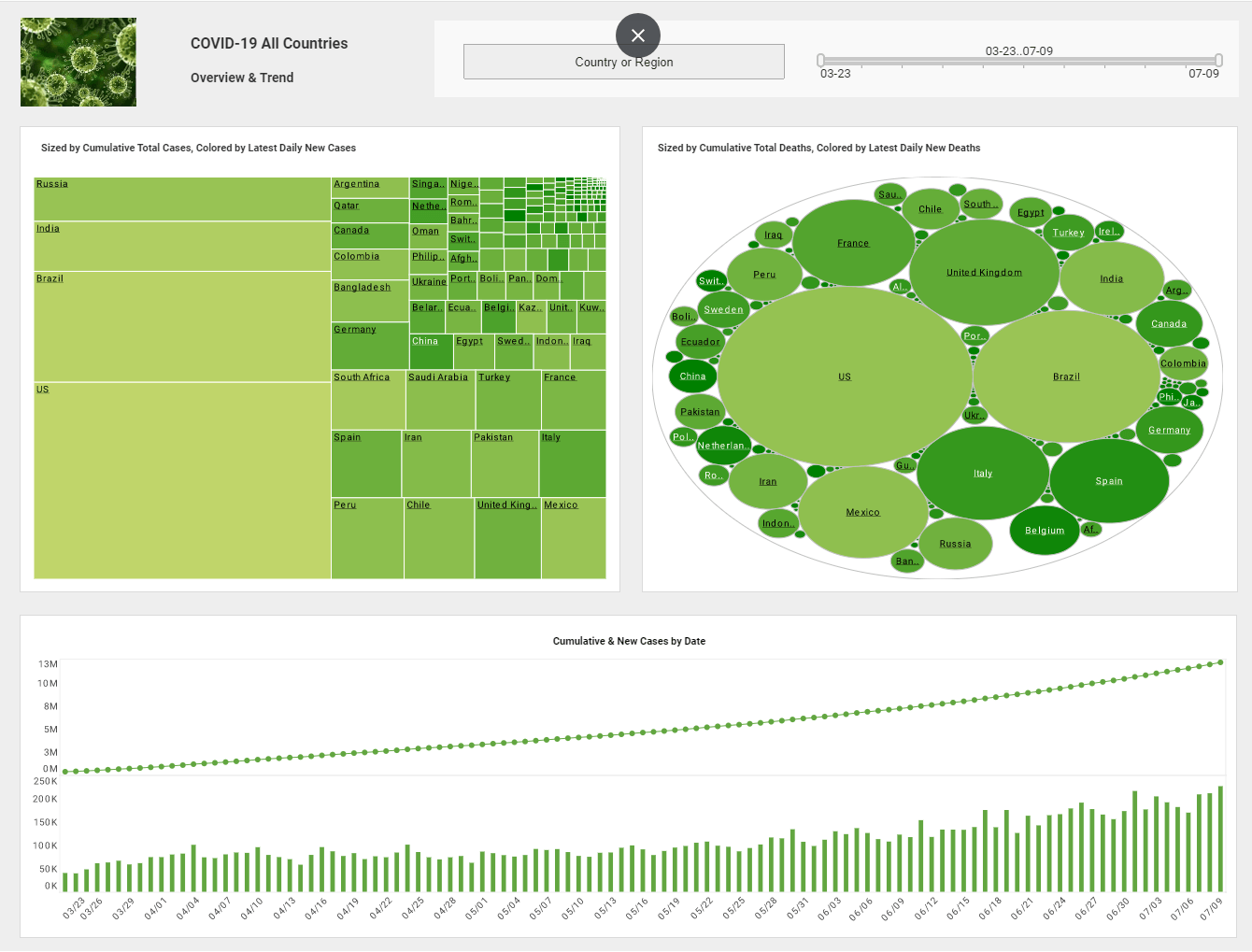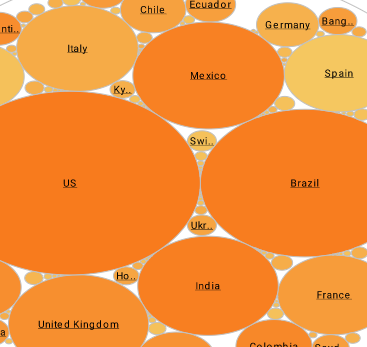Cloud-Flexible Data Mining Tools
Data mining is the process of automatically compiling large amounts of data with the objective of finding non-obvious patterns and deciphering the connections between copious types of data to develop predictive models.
Data mining also has powerful analytical applications from simple SQL queries to construction of tables using OLAP tools or other, more sophisticated statistical analysis means.
These analytical tools look for sequences in the data or test hypotheses. They use methodologies to find patterns or conduct multivariate statistics for customer subdivision.
The industrial focal point of well established data mining is the data warehouse. In the past, data was aggregated by transactional or operational technologies. These operational systems had very distrinct functions while a data warehouse gathers multi-dimensional information that can be cross-referenced.
| #1 Ranking: Read how InetSoft was rated #1 for user adoption in G2's user survey-based index | Read More |
Data stored on data warehouses will imminently grow en masse and cannot be stored on servers for long. Instead, data warehouses utilize storage area networks where the cache can be increased as the need for space grows. Is also worth noting that storage area networks are accessible by all sectors of an organization, because they are managed from a single graphical user interface. This singular GUI enables companies to use their data for strategic planning.
Benefits of Data Mining Tools
Data mining is an aide to calculated and operational decision-making in situations where multiple variables can disturb the future consequences of a particular decision. The modeling associated with data mining assimilates the information related to the pros and cons of variable courses of action and displays them as decision trees. Companies use this information to find new opportunities for growth, choose more effective means to achieve their business goals and streamline business processes to lower their costs.
What Do Analysts in the Biologics Industry Do Data Mining On?
Analysts in the biologics industry engage in data mining on a diverse range of critical aspects to extract valuable insights that inform decision-making and optimize various processes within the sector. Biologics, which include a wide range of biological products such as vaccines, antibodies, and gene therapies, involve complex processes and extensive data. Analysts leverage data mining techniques to uncover patterns, trends, and relationships within this data. Here are key areas that analysts in the biologics industry typically focus on:
- Bioprocess Optimization:
- Data mining is applied to optimize the bioprocessing stages, including cell culture, fermentation, and purification.
- Analysts extract insights to enhance yield, reduce production costs, and improve overall efficiency in the manufacturing of biologics.
- Quality Control and Assurance:
- Analyzing data related to product quality to ensure that biologics meet stringent regulatory standards.
- Identifying patterns in quality control data to maintain consistency and adherence to Good Manufacturing Practices (GMP).
- Clinical Trials Data:
- Mining data from clinical trials to assess the safety and efficacy of biologic products.
- Extracting insights related to patient responses, adverse events, and other clinical outcomes.
- Supply Chain Optimization:
- Analyzing data across the supply chain to enhance logistics, distribution, and inventory management.
- Identifying opportunities to optimize the supply chain for timely and cost-effective delivery of biologics.
- Market Trends and Competitive Intelligence:
- Data mining is employed to analyze market trends, competitor activities, and customer preferences.
- Extracting insights on market dynamics to guide strategic decision-making and product positioning.
- Research and Development (R&D) Data:
- Analyzing data from R&D activities, including genomic and proteomic data for target identification and validation.
- Extracting insights to guide the development of new biologics, improve existing formulations, and streamline research processes.
- Manufacturing Process Monitoring:
- Continuous monitoring and data mining of manufacturing processes to ensure consistency and compliance.
- Identifying deviations or anomalies in real-time to enable rapid response and process optimization.
- Cost Analysis:
- Analyzing data related to the cost of production, including raw materials, labor, and equipment.
- Extracting insights to optimize cost structures and identify areas for efficiency improvement.
- Patient Outcomes and Real-World Evidence:
- Mining real-world data on patient outcomes to assess the long-term effectiveness and safety of biologic therapies.
- Extracting insights for evidence-based decision-making and regulatory submissions.
More Articles About Data Mining
Analytic Tools for Government Decision-making - It's driving a lot of decisions that the government has to make, hard decisions. And we want to make sure they are the right decisions because they are going to impact our future. We are also working with a lot of states who are working on tax compliance solutions. For instance, I read where over the past fifteen years a combination of five states were able to collect $1.5B more because of good analytics...
Data Mining and How It Is Used in Marketing - Here's an interesting look at data mining and how marketers use when they learn about you. Imagine a young lady named Angie just ordered a new fall coat from her favorite retailer. Or a middle-aged couple named Sarah and Sam requested a car insurance quote to see if their current policy was competitive. Or a teenager named Mark filled out a fun...
Evaluate InetSoft's Application Performance Metrics Dashboard Tool - Are you looking for an application performance metrics dashboard tool? InetSoft's flexible dashboard application produces great-looking cloud-based dashboards with an easy-to-use drag-and-drop designer. Mash up your application performance data with any other inside or outside your enterprise. View a demo and try interactive examples...
Maintaining a Data Warehouse - Acquiring and maintaining a data warehouse involves several costs, both upfront and ongoing. It's important to consider these expenses when planning for the implementation of a data warehouse. Keep in mind that the specific costs can vary widely depending on factors like the size of the organization, the complexity of the data infrastructure, and the chosen technology stack. Here's a comprehensive breakdown of the costs associated with a data warehouse...

